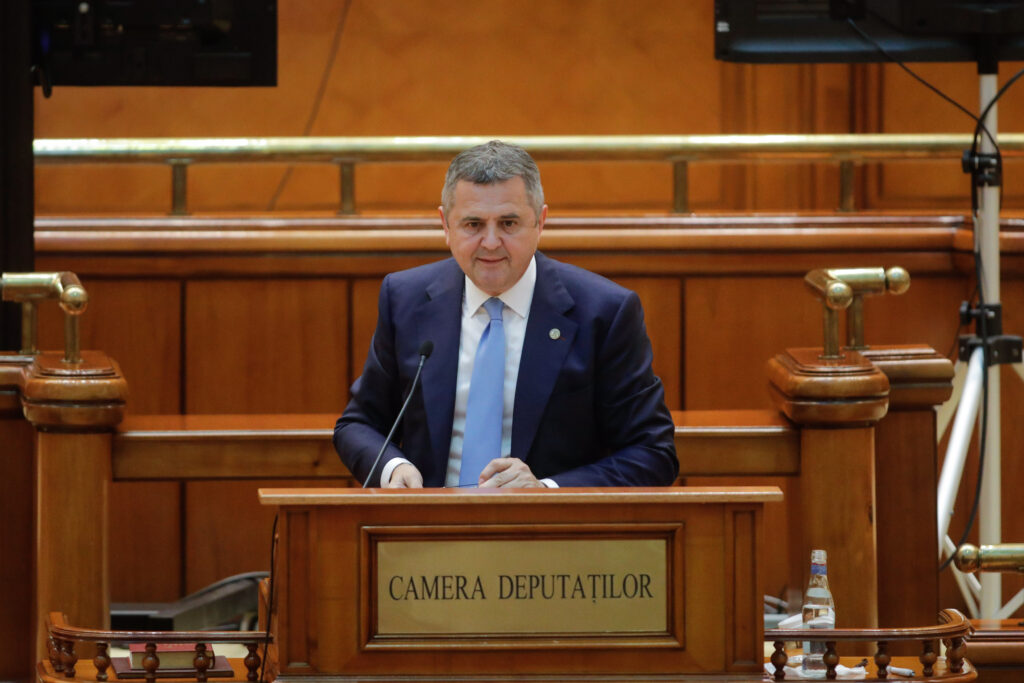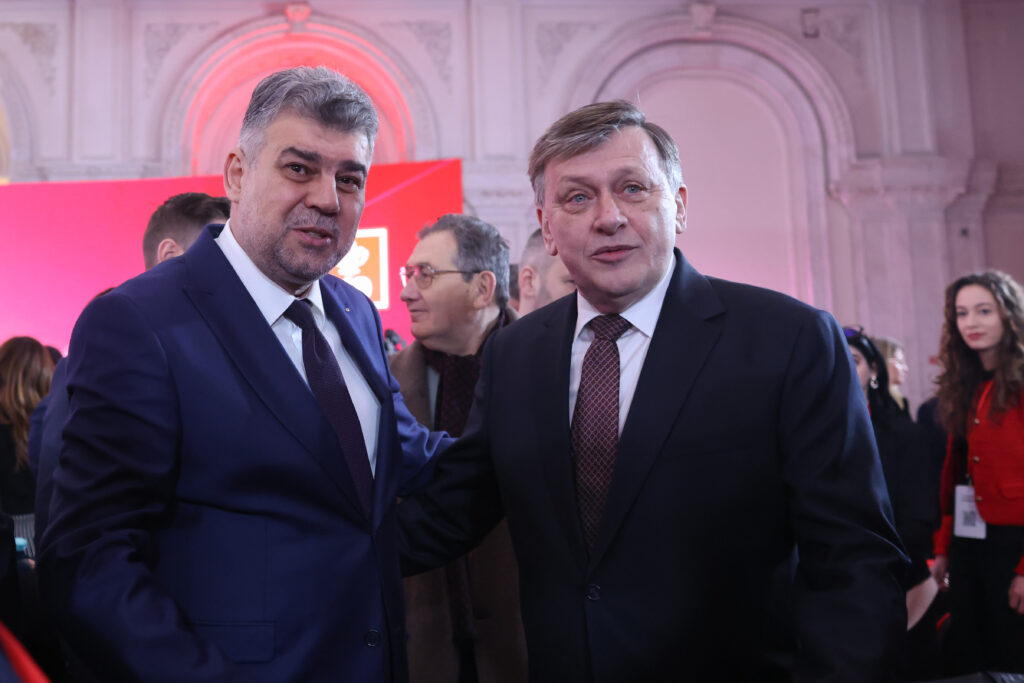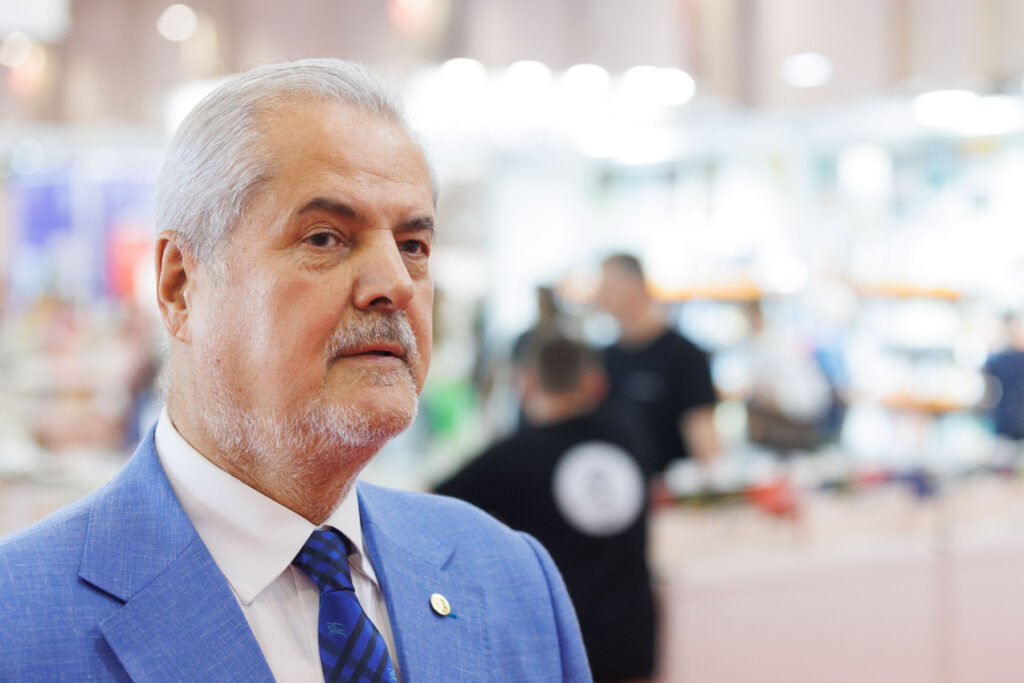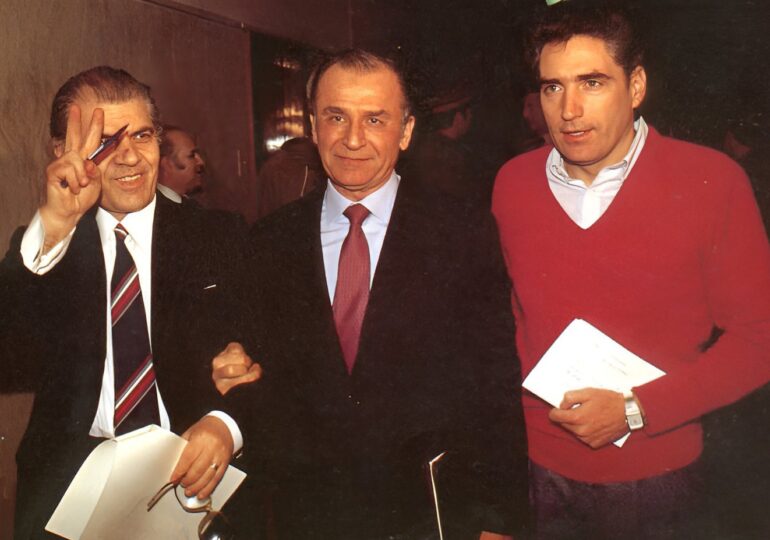The appointment of Eugen Bejinariu, a PSD deputy, to lead the SRI Control Committee in the Chamber of Deputies does not say much to those aged between 20 and 30 who spend a lot of time on TikTok and want to vote for an „antisystem” candidate like Călin Georgescu.
They do not know that the latter represents the system itself, it was created in its corners, launched from there with the purpose of pushing Romania into a gray area, further from the West and closer to Russia, so that those in the system, who took power after 1990 and survived, do not lose control.
Eugen Bejinariu, 66 years old, previously worked as an officer in the Ministry of Defense, being a politician who gravitates around Adrian Năstase.
Over time, he has been involved in corruption scandals, such as "the" Microsoft affair, but he escaped investigation, saved by parliamentary immunity.
His return to the forefront precisely at the moment when the SRI is going through a profound crisis of trust caused by the cancellation of the presidential elections indicates an increase in the influence in society of the Ion Iliescu - Adrian Năstase axis, which is pushing Romania towards the edge of Europe once again.

Concerned about the war unfolding at the border, preoccupied with the political deadlock generated by Iohannis, Ciucă, and Ciolacu, too few have paid attention to the activity of the former president of Romania who is approaching 95 years old, which will be reached on March 3.
Aside from jokes made on social networks about his ancient age, Ion Iliescu has remained surprisingly active, and throughout the past year, he has periodically exposed his political vision through posts on his blog, as well as conducting a lengthy interview with his advisor, deputy Ionuț Vulpescu, for the "Avangarda" podcast.
Turbulent Days, Malița Reprimanded by Ceaușescu
"The July Theses, 1971, brought back censorship and blocked the significant opening of the recent years in the cultural sphere. Ceaușescu showed signs of fear: accusing representatives of the education system of bourgeois liberalism - not even Mircea Malița emerged unscathed from the meeting - communication and circulation began to be restricted, with increasingly harsh controls on border crossings," Ion Iliescu recounted in the interview given to his personal advisor.
"1971 also marked the beginning of autarky: Ceaușescu isolated Romania under the pretext of a capable people who do not need imports, and very soon the thesis was launched that political independence can only be confirmed by economic independence, meaning the absence of foreign debts," added Ion Iliescu.
In this interview, the former president once again tries to make amends with history, to change the collective perception that he came to power with Moscow's support in the turbulent days of the 1989 revolution.
The chaos that Romania has plunged into at the end of last year is also related to the fact that over 35 years since the fall of Nicolae Ceaușescu's regime, there has been no process to determine the responsibilities of those who took power on December 22 and triggered a massacre to eliminate any form of opposition.

The Right to Silence
"… in October 2016… Ion Iliescu's untimely entrance almost made me fall off my chair," recounted prosecutor Cătălin Ranco Pițu, one of those who conducted the indictment in the "Revolution File," in his book Breaking the Curse.
"Not only did he arrive almost an hour earlier than requested, but he also entered confidently, with his well-known broad smile, giving the impression of a detached person with nothing to hide," described prosecutor Pițu the meeting with the former president, who was called in for questioning.
"… impeccably dressed, he sat down… and granted us the privilege of being in his presence. From the start, he told us that he would exercise his right to remain silent," the prosecutor further emphasized in his book.
"… the conversation was conducted at a high level, even elegantly, until the moment we expressed our desire to discuss the people who died starting on December 22, 1989. At that moment, Ion Iliescu truly changed his demeanor, his gaze becoming unnaturally dark and sharp. He even slightly lost his composure when I told him that there were suspicions that he was among those whose conduct decisively contributed to the tragedies that occurred on the evening of December 22," wrote Cătălin Ranco Pițu in the book Breaking the Curse.
In this brief description, one can see how deeply the political system created by Ion Iliescu buried the truth about the dubious way in which he came to power and consolidated it during those turbulent days.
Romania is still affected today by the hijacking of the popular movement back then and the keeping of the country, at least for a decade, under direct influence from the Kremlin.
Ion Iliescu, Gelu Voican Voiculescu, Petre Roman, Adrian Năstase, Adrian Severin, and others are still here and still have a significant political and economic influence, connections in the secret services, and access to information that affects the course of events in the country.
Ghosts with Rescue Plans
Against the backdrop of Marcel Ciolacu's failure, which caused the biggest defeat for PSD, old power structures are regrouping and bringing forward characters through whom they try to maintain their influence.
The emergence of Eugen Bejenariu as responsible for SRI control is a strong signal that the heirs of the Communist Party have not disappeared.
The entry of Victor Ponta onto the stage, a disciple of Adrian Năstase, is another sign that shadow forces are proposing a rescue plan for PSD, aiming to transform it into a conservative party, riding the wave of the populist current in the USA, promoted by Donald Trump.

In the underground of Romanian politics, discussions are currently underway to find solutions to the "virus" of Călin Georgescu, a candidate promoted through an association of internal intelligence networks, mainly composed of former spies from the Ceaușescu era and the '90s, with "colleagues" from Russia.
"The popularity of candidate Georgescu has grown remarkably quickly on TikTok, especially in the two weeks leading up to the elections," according to the report issued by the French government, under the authority of the Prime Minister.
"For example, the number of subscribers and views on Călin Georgescu's TikTok account tripled between November 10 and 24, 20245. The hashtags associated with the candidate also enjoyed explosive popularity, such as #calingeorgescu which, according to the European Digital Media Observatory, recorded over 73.2 million views in seven days. According to TikTok, the increase in the number of subscribers for accounts promoting this candidate did not follow a typical organic pattern, indicating a coordinated process," the official document further specifies.
Such an operation could not have been carried out without the involvement of foreign entities, some of which had influence even over the Chinese company, suspected of turning a blind eye to the manipulation of the TikTok network's algorithm.
Romania is rapidly changing, and not for the better, with ghosts emerging from the deep layers of society with rescue plans, just like in 1990, which slowed down the democratization and development of the country for decades. What will be different? Ion Iliescu is still here, beside us. He is watching over us!

